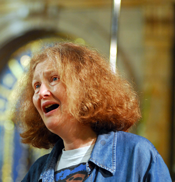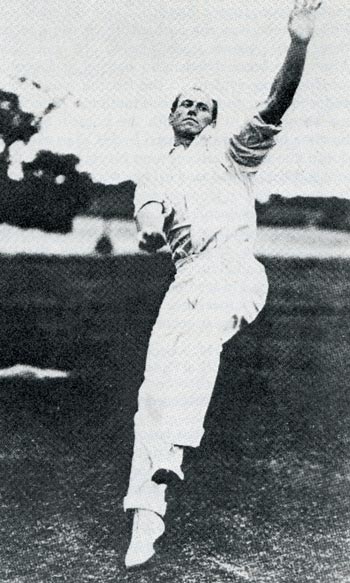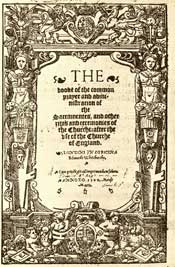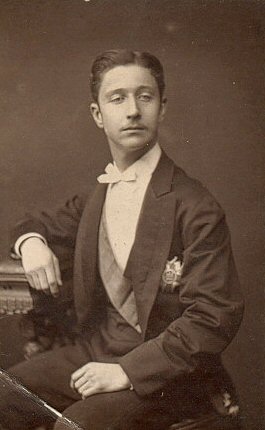On This Day
The
BBC.
Strange the banging together of ideas and thoughts - and lessons.
I was doing a 'conversation' session on Wednesday - based (at the request of one of the participants) on a set of programmes from the BBC Learning English programme,
Talk about English.
The series (excellent) is called, '
Who on Earth are we?' - and has a basis in the idea of culture and how it affects communication.
We started to examine the idea of stereotypes and got on to the question of what stereotypes people thought there were about Romanians. Our discussion moved into the topic of religion, never very safe at the best of times.

Life got a little warm, but not too heated - the biggest issue being over the peaceful nature of the Orthodox religion in Romania.
I decline, at this point, to address that.
After the discussion, I thought about posting a few comments on the effects of religion on the 'cultural identity' of people.
However, seeing as I regard statements in the English classroom as more confessional than those delivered to your average psychiatrist (at least you are concious of what you are saying on the couch, and in some control of the language you are using) I decided against it - and preserved the integrity of
Babel, once again.
However, the issue has been simmering - and when, today, the Beeb pop up with the Kosovo Battle - it spills over.
Take a look at this choice piece of writing:
On June 28, 1389, a mighty battle was fought at Kosovo Polje. It pitted the Serbian defenders of Christ's holy cross against the invading Ottoman Empire (Turkey) adherents of the Muslim crescent moon.
This is from a piece from '
Truthmedia' - welcome to
1984 'newspeak' in reality.
I think the idea of combining crude nationalism and divisive religious views can find no better expression (I also guess the writers of this 'truth' wouldn't even notice they'd done it).
I've blogged before on nationalism and patriotism - on the difference between loving the state and loving the land.
Unfortunately, religion has been dragged in on the side of the state - and that leads to an intensification of conflict.

It doesn't have to be - the English (after beating each other to death and burning a few people) finally settled to a religion which, at its best, fitted the land:
Anglicanism is a now dated celebration of getting on with the farming and not messing around with the harvest.
It's whole principle is the reduction of religion to being servant of the people, not the other way round - and if the sate is going to be involved (and, boy, is it involved in the Anglican Church!) it is only to make sure the religion stays firmly in it's place - Sunday morning, and a couple of rites of passage.
God and you are friends on personal terms - you don't need a man in silly clothes to interfere between you - and the buildings are nice too.

Not so I'm afraid with other nations - they take their gods far too seriously - look at the state America gets in!
And don't forget, that is a place which believes in the separation of religion from the state!
Newspeak!
If there was to be a 'new-speak' in Orwell's totalitarian world, there must have been an 'Oldspeak'.
Fortunately, Kosovo has managed to produce an adherant to Oldspeak as well as countless adherents to the destruction of words.
Ismail Kadare
You may, or may not have heard of the Albanian author - he has
something of a reputation.
For the purposes of this little excursion, he wrote perhaps the sanest book on the events in Kosovo over 600 years ago:
Three Elegies for Kosovo.
(
Amazon uk)
Technorati Tags:
BBC,
Kosovo,
religion,
Timisoara,
Romania,
Babel,
USAPowered by ScribeFire.
 did it sound good - my name was on the lips of Emma Kirkby!
did it sound good - my name was on the lips of Emma Kirkby! 1613: London's Globe Theatre burns down when a theatrical canon is fired during the play 'All Is True'.
 When I got there it became apparant that it had rained in the night - more than rained if the amount of mopping-up, closed shops and dripping ceilings were anything to go by.
When I got there it became apparant that it had rained in the night - more than rained if the amount of mopping-up, closed shops and dripping ceilings were anything to go by.


 Not that this picture gives any indication of the intenseness of the green - the contrasting white of the players and the lines, or the sheer lift knowing summer has at last arrived and all is well with the world.
Not that this picture gives any indication of the intenseness of the green - the contrasting white of the players and the lines, or the sheer lift knowing summer has at last arrived and all is well with the world.
 It doesn't have to be - the English (after beating each other to death and burning a few people) finally settled to a religion which, at its best, fitted the land:
It doesn't have to be - the English (after beating each other to death and burning a few people) finally settled to a religion which, at its best, fitted the land:  Not so I'm afraid with other nations - they take their gods far too seriously - look at the state America gets in!
Not so I'm afraid with other nations - they take their gods far too seriously - look at the state America gets in! Watching Queens last week you notice there are the winners and the players you like watching - some do both (
Watching Queens last week you notice there are the winners and the players you like watching - some do both (


 For starters - it was in Latin. Henry was breaking from Rome not from religion - although it didn't stay in Latin for long .. 2 or 3 years: Then the book got seriously important.
For starters - it was in Latin. Henry was breaking from Rome not from religion - although it didn't stay in Latin for long .. 2 or 3 years: Then the book got seriously important.
 The first thing to understand is a deep emotional commitment I feel to the events - my father was at Dunkirk - if the evacuation hadn't happened, the chances of me being here at all would be very limited.
The first thing to understand is a deep emotional commitment I feel to the events - my father was at Dunkirk - if the evacuation hadn't happened, the chances of me being here at all would be very limited.
